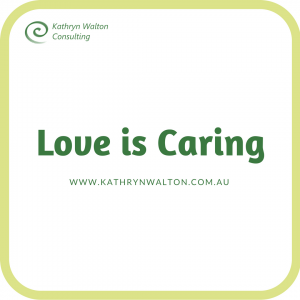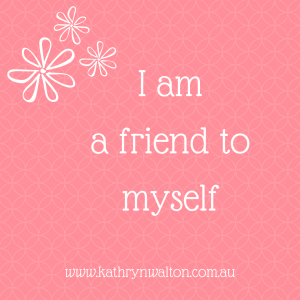
Do you feel pressure from the fast-paced world, juggling your responsibilities and striving to fit self-care into your already busy life? If so, you’re not alone! Women often report that the biggest obstacles to self-care are lack of time and competing priorities. The consequences are far-reaching. This article brings new light to these obstacles, offers you some practical self-care ideas to incorporate into your day without adding any more pressure, and invites you to a delightful morning of retreat!
What is self-care?
“Self-care” has become a trendy cliché in recent years, but it’s so much more than simply another activity to fit in your day, or a luxurious treat you might have occasionally. We’re bombarded with images and advertisements that suggest self-care is all about pampering, looking good, and spending money on yourself. These experiences and products may be an important part of your personal routine, but genuine self-care runs much deeper.
 Self-care is literally all about caring for yourself, possibly in similar ways that you care for other people in your life. This includes caring for your physical, mental, emotional and spiritual health. Sometimes this includes doing things that feel good such as a relaxing bath or an outing with friends. It also means making choices for ourselves that might feel uncomfortable in the short-term, because we know this is what’s best for our longer-term wellbeing.
Self-care is literally all about caring for yourself, possibly in similar ways that you care for other people in your life. This includes caring for your physical, mental, emotional and spiritual health. Sometimes this includes doing things that feel good such as a relaxing bath or an outing with friends. It also means making choices for ourselves that might feel uncomfortable in the short-term, because we know this is what’s best for our longer-term wellbeing.
Sometimes self-care is uncomfortable
We barely think twice when we take firm action with others we care about. For example, as parents we know it’s in the best interests of our children to place limits on the TV they watch. Our children might not like it but we know how important it is for their overall wellbeing, and so we stand firm. When it comes to standing firm on our own self-care, it can be easy to give in to our feelings in that moment. It’s easy to ignore the long-term health benefits of daily exercise when it’s so much cosier sleeping-in instead. Where is our internal parent when we need them?!
What’s getting in the way of self-care?
There are infinite obstacles to self-care but most of them fall under one of these headings:
External Pressures
Women in our society have unconsciously been conditioned to take on multiple  roles, and to perform them with excellence, and with a smile on their face. More often than not women carry the bulk of the emotional load in both family and work life – organising, planning, predicting, comforting, parenting, caring, pleasing, time-managing, problem-solving, rescuing and so on. The many competing priorities present dilemmas on a daily basis. Who’s got time or energy to stack self-care into a life that’s built around serving other people’s needs?
roles, and to perform them with excellence, and with a smile on their face. More often than not women carry the bulk of the emotional load in both family and work life – organising, planning, predicting, comforting, parenting, caring, pleasing, time-managing, problem-solving, rescuing and so on. The many competing priorities present dilemmas on a daily basis. Who’s got time or energy to stack self-care into a life that’s built around serving other people’s needs?
Internally Generated Excuses
These issues focus on the way women think about themselves and their roles.  The way we think is closely related to the way we have been socialised when were younger, with the added layer of personality thrown in. So it’s no surprise that women often share certain beliefs, assumptions and thinking patterns related to self-care – it’s selfish to do something for myself; people will think I’m selfish / not coping; time and money should be spent on something or someone else who needs it more than me; I don’t have enough time or energy; I should just soldier on like everyone else does …..
The way we think is closely related to the way we have been socialised when were younger, with the added layer of personality thrown in. So it’s no surprise that women often share certain beliefs, assumptions and thinking patterns related to self-care – it’s selfish to do something for myself; people will think I’m selfish / not coping; time and money should be spent on something or someone else who needs it more than me; I don’t have enough time or energy; I should just soldier on like everyone else does …..
What’s the big deal with self-care anyway?
Self-care is not selfish. Think about what values are most important to you – perhaps compassion, kindness, generosity? Many of us readily live out these values towards other people yet struggle when it comes to ourselves. How can we truly be compassionate, kind and generous beings when we select who we are compassionate, kind and generous towards? Are you being consistent with your values? How does this affect your self-care?
Consequences of poor self-care
The consequences of poor self-care include reduced physical and mental health, strained relationships, under-performance and increased of risk of compassion fatigue and burnout. Consider also how you are modelling self-care practices (or lack of them) for the next generation. Unwittingly we often enable unhealthy and unsustainable practices to continue to the next generation, reinforcing gender inequity along the way.
Self-care without the pressure
Here are some self-care actions that don’t add extra pressure into your day:
-
say ‘no’ to something so you can say ‘yes’ to something more important
-
set boundaries in your relationships
-
mute your phone at meal times
-
take time to enjoy preparing a nutritious meal
-
delegate some responsibilities
-
have some ‘go-slow’ time each day
-
change your morning routine so you feel less rushed
What does self-care look like for you?
What are some actions you could take every day that show compassion, kindness and caring towards yourself?
Women Empowered Morning of Retreat
Discover the possibilities that arise when you prioritise your own health and self-care!
Come along to my next Women Empowered Morning of Retreat in Warwick on Tuesday 4th September 2018. This will be a gentle-paced morning of reflection, discussion and creative activities.
MORE INFORMATION AND REGISTRATION
Read about my last retreat “Women Empowered: Framing My Future with Financial Confidence”
….. and some of the insights gained by the women who participated.
Discovering mountain biking as life’s ultimate parallel universe in her middle age,  Kathryn Walton shares information and reflections in Daisy Spoke that connect, inspire and self-empower women to make healthy choices for themselves. She integrates her love of physical exercise, family, nature, gardening and creative arts with her professional background in mental health social work to facilitate change with individuals, groups and communities of women who are committed to living life to the full.
Kathryn Walton shares information and reflections in Daisy Spoke that connect, inspire and self-empower women to make healthy choices for themselves. She integrates her love of physical exercise, family, nature, gardening and creative arts with her professional background in mental health social work to facilitate change with individuals, groups and communities of women who are committed to living life to the full.

